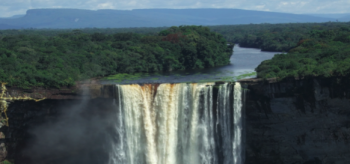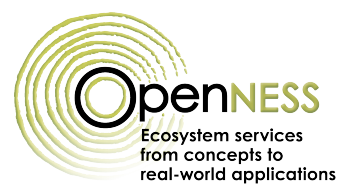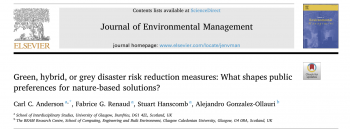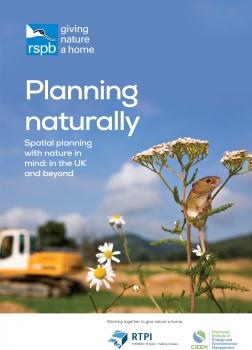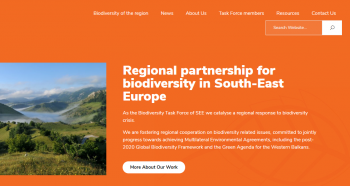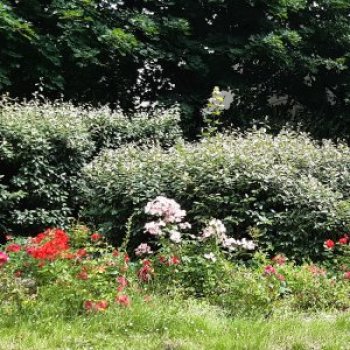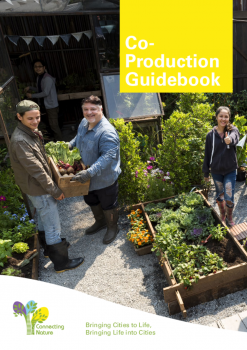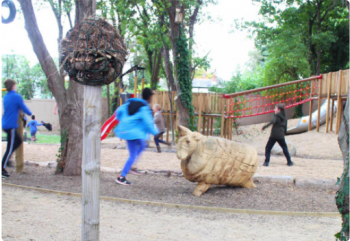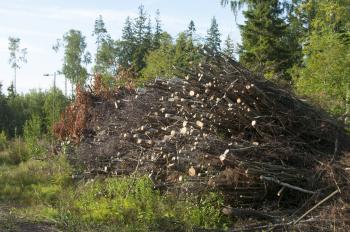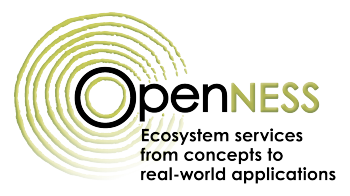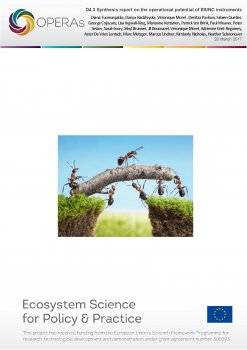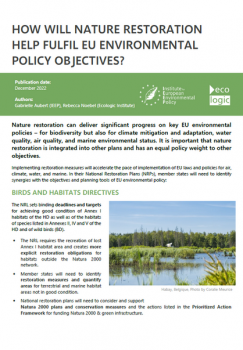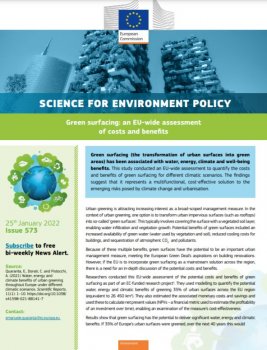Barcelona - Embracing the Vision of a Greener Future (URBES video)
With 1.62 million inhabitants, Barcelona is one of the most densely populated cities in Europe. Located between the Mediterranean Sea and the mountain range of Collserola, the city has urbanised virtually all available land after various periods of urban expansion. This has led to conflicting
Protecting the Amazon can protect the Climate
Amazon Protected Areas are key in helping communities and nature adapt to a changing climate. They build resilience to climate change globally, mitigate the impacts of climate events, ensure the provision of ecosystem services and protect biodiversity. Protected Areas should be included in climate
OpenNESS Synthesis paper: Link between biodiversity and ecosystem services
As was stated in the OpenNESS proposal, the quantitative relationship between biodiversity, ecosystem functioning and ecosystem services is still poorly understood. It is still unclear under what circumstances an emphasis on ecosystem services in planning and decision making is (conceptually and
Green, hybrid, or grey disaster risk reduction measures: what shapes public preferences for nature-based solutions?
The OPERANDUM project has the primary aim of reducing risk from hydrometeorological hazards using NbS across Europe. It is unclear what DRR measures at-risk individuals may prefer on the green-hybrid-grey spectrum and what shapes their preferences. This study investigates the other factors,
Planning Naturally. Spatial planning with nature in mind: in the UK and beyond
RSPB, CIEEM and the RTPI have come together to show how planning for biodiversity should be integral to every part of the planning process and to inspire with examples of good practice, whatever country you are working in.The report is structured around 12 principles of good spatial planning, and
Regional partnership for biodiversity in South-East Europe
The Biodiversity Task Force of South East Europe (BDTF SEE) was established in 2017 under the auspices of the Regional Cooperation Council (RCC) to strengthen regional cooperation on nature conservation. It works as an intergovernmental technical body mandated to provide technical advice to the RCC
Concept to Delivery Innovation Programme - Sustainable finance, business models and nature-based entrepreneurship strategies for Nature-based Solutions
Designing, delivering and managing nature-based solutions at a level that provides environmental, social and economic benefits while building resilience and benefitting biodiversity is complex. There are many issues to consider and many different stakeholders involved at all stages of the process.
CO-PRODUCTION GUIDEBOOK
This Guidebook introduces what co-production is: a novel governance method for developing nature-based solutions where there are a lot of actors (individuals, groups or organisations) involved. Co-production is about collaboration, empowerment, and producing shared results, such as policies and
Providing contact with nature for young generation - A case study of preschools in the City of Poznań, Poland
Contact with nature is valuable for the health, wellbeing and development of children. Meanwhile, the urban environment and the contemporary urban lifestyle limit the opportunity for contact with nature. Given that children aged three to six years spend a significant amount of time in preschool, we
Bridging Worlds: Decolonising Nature-Based Solutions Education
This essay embarks on a transformative journey, exploring the integration of decolonial approaches into Nature-based Solutions (NbS) professional education. It delves into the rich tapestry of indigenous, local, and marginalized knowledge systems, challenging the colonial underpinnings that have
International principles and standards for the practice of ecological restoration
This summary provides an abbreviated outline and introduction to the full SER International Principles and Standards for the Practice of Ecological Restoration, Second Edition to: better understand how the principles and standards relate to each other; apply these concepts at all stages of a
Conexus Life-Lab factsheet series - Wetland Lugano, the restoration of an aquatic ecosystem
The Lugano wetland pilot is restoring an aquatic ecosystem lost by urbanization in the south of Buenos Aires. The pilot is led by the city government. It involves key stakeholders to promote social awareness about the benefits that wetlands provide to the community. The enhancement of biodiversity
- Paper
Nature-based solutions coupled with advanced technologies: An opportunity for decentralized water reuse in cities
Decentralized water reuse in cities is a prominent alternative to mainstream top-down models for urban water treatment, which are based on centralized, linear dynamics of resource management. In this sense, Nature-based Solutions (“green” technologies) coupled with advanced technologies (“grey”
Policy Brief: EU bioenergy policies at the crossroad
The policy brief summarizes policy messages on bioenergy production in the EU
OpenNESS Synthesis paper: Scenario building and its application
The term scenario is widely used in different ways and contexts, making it necessary to arrive at a common understanding of how the term is used. Based on the OpenNESS Glossary, scenarios are defined as "plausible, but simplified descriptions of how the future may develop, based on a coherent
What are Nature-based solutions (NbS)? Setting core ideas for concept clarification
Although nature-based solutions (NbS) have been promoted as a key tool for solving diverse environmental and societal problems, the concept and its practical applications remain unclear. This ambiguity is linked to the fact that the NbS concept has emerged from the integration of multiple
OPERAs D4.3 Synthesis report on the operational potential of ES/NC instruments
This report is the synthesis deliverable of WP4 and thus brings together the overarching message of experiences and results of the joint WP4 Instruments work. It is aimed at those developing ES and NC instruments, or those considering funding the development of such instruments, in order to ensure
How Will Nature Restoration Help Fulfil EU Environmental Policy Objectives?
The EU Commission published its proposal for a new Nature Restoration Regulation in June 2022. In this context, IEEP and Ecologic Institute – as part of the Think Sustainable Europe network – published a series of thematic policy briefs to inform Members of the European Parliament and other
MEZŐGAZDASÁG: Talaj = Élet
Az intenzív gazdálkodás miatt a világ termőtalajainak jelentős hányada leromlott állapotban van vagy már véglegesen meg is semmisült. Ennek oka a talajok szervesanyag-tartalmának csökkenése, az ebből következő szerkezetromlás, tömörödés és az erózió, illetve a savanyodás, a szikesedés vagy éppen a
- ‹ previous
- 6 of 48
- next ›


